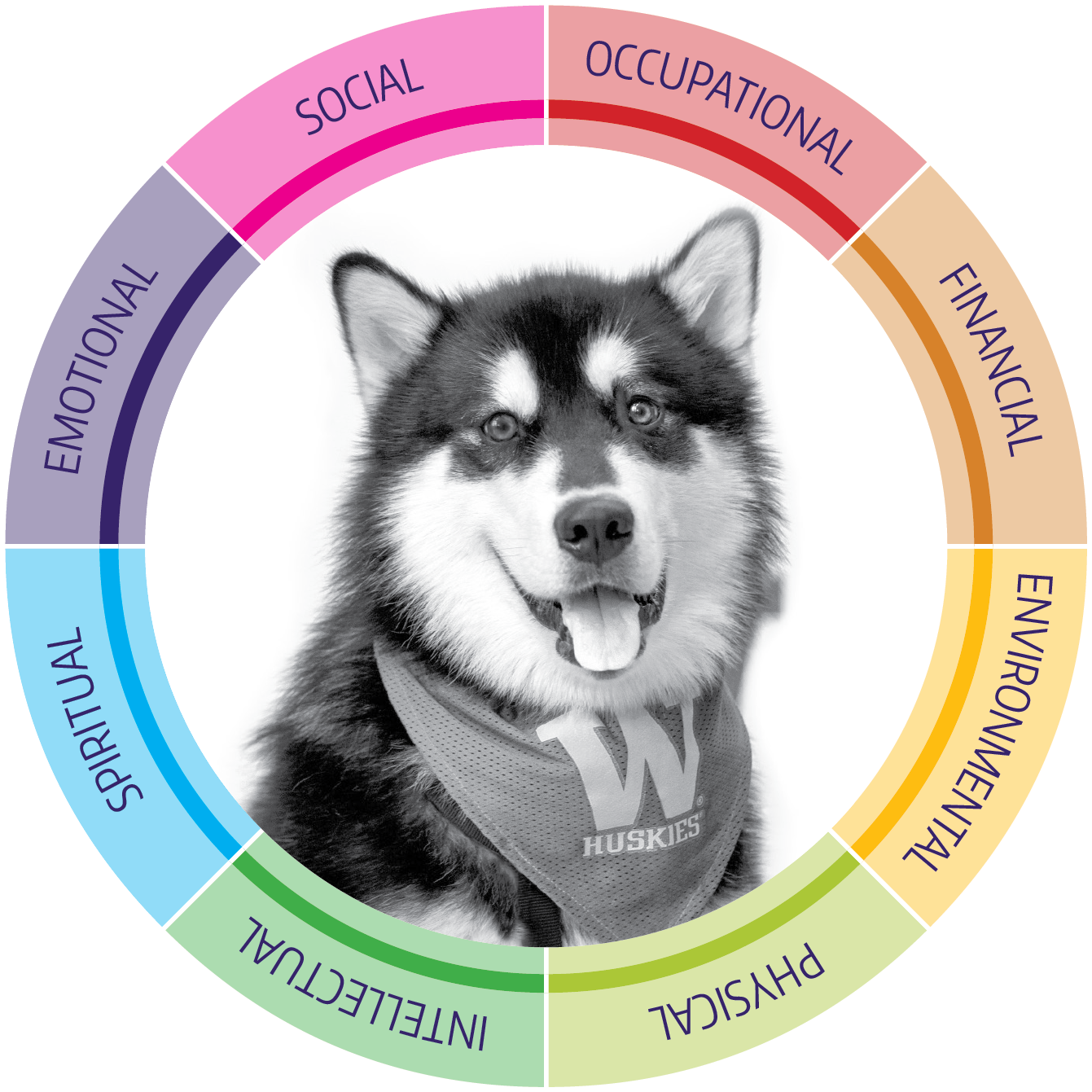Main Content
Health education workshops and presentations follow a harm reduction approach in providing audiences with information on specific health topics so that audience members can make informed decisions about their own health and well-being. Workshops are intended to increase knowledge, awareness, confidence, or skills around health information, activities, behaviors, or resources.
Workshops can be delivered virtually or in-person and are tailored to specific audiences upon request. Workshops usually last between 40 to 50 minutes and allow time for questions.
Learn more about workshop and presentation options below. If you don’t see a workshop related to a specific health topic that you are interested in, reach out to madieb@uw.edu. Please give at least 10 business days advance notice for workshop requests.
Request a Workshop
Interested in requesting a workshop?

All Student Health workshops integrate the Hendrix Wellness Wheel to enhance well-being across the eight dimensions of health through harm reduction and skill building.
Participants will learn about standard drinks and how they affect their BAC, discuss myths about sobering up, learn how to be an active bystander when someone is experiencing acute alcohol poisoning, and decide how safer use strategies can work for them if they choose to drink.
Bust myths, consider various types of risks, and learn evidence-based, harm reduction techniques to increase safety and reduce the likelihood of negative outcomes when it comes to cannabis use.
Learn about stress and strategies to manage it. Participants will practice exercises to find what works best for them.
Understand the process of sleep and why it’s so important for academic success and well-being. Participants will reflect on their current sleep habits and consider steps they can take to sleep well.
Learn how to make the most out of your dollar while still maximizing nutrition and satisfaction from the foods that you enjoy. Participants will be introduced to intuitive eating, nutrition requirements, and food labels, and will brainstorm grocery store success strategies that work for them.
This 90-minute training introduces substance use disorders and the signs of addiction, substance use recovery, and how to support a loved one as a recovery ally.
Consider what’s best for your sexual health, your needs around physical intimacy, and choices when it comes to harm reduction. Participants will reflect upon personal boundaries for physical intimacy, understand consent and safer sex strategies to reduce the risk of unintended outcomes related to physical intimacy, and consider how they would respond to hypothetical situations that test their personal boundaries around physical intimacy.
A basic overview of health insurance and how it all works, and what to expect when making an appointment at the doctor’s office.
This workshop will cover what test anxiety is, provide techniques to reduce anxiety and give helpful study tips for test preparation.
Enhance your financial well-being by practicing personal finance and budgeting skills, learn the basics about banking and credit, and consider personal financial goal setting.
Our health and well-being go beyond just our mental and physical states. Enhance your overall well-being by understanding how the all of the dimensions of our health are interconnected and how they apply to our unique lives.
This workshop introduces advocacy as a free support service to students who have been impacted by sexual violence. Participants will understand what advocacy services are and how to get started, and will be able to ask any questions they have about the service. This is a 20 minute presentation.
Participants will understand the different types of relationships and the inherent values behind why we seek the relationships that we do. Participants will take their own personal relationship inventory, learn how to spot red and green flags, and learn how to support a friend going through a challenging relationship.
Understand what mental health is and how its related to overall well-being. Participants will learn strategies to enhance their mental health, bust suicide myths and increase their bystander intervention skills, and learn about campus mental health resources.
Request a Workshop
Complete the form below to request a workshop!
